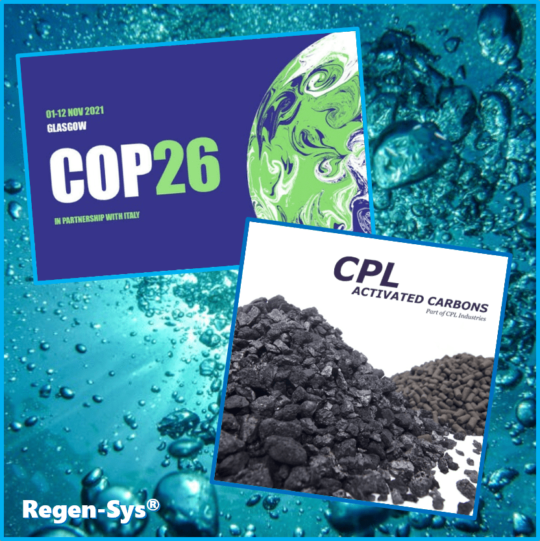There is a great deal of anticipation and excitement here in the UK as it gears up to host the COP26 UN Climate Change Conference, which begins in Glasgow next week.
The need to protect the environment has never been more critical and, here at Puragen, we are playing our part in this endeavour. From the purification of air and water to its use in the generation of renewable energy, activated carbon filtration plays a vital role in many important industrial processes.
When activated carbon is ‘spent’ and needs to be replaced, in most cases it can be recycled via a process called thermal reactivation. At our site in Immingham we have two separate kilns for reactivating spent carbons from potable water treatment and industrial/environmental processes, respectively. The recycled carbon can be used again and again in customers’ purification processes and this offers several advantages over the use and disposal of new/virgin activated carbons:
- Eliminates disposal costs (hazardous waste in the case of carbon used for industrial/environmental processes)
- Eliminates material sent to landfill or incineration
- Far lower CO2 footprint
- Protection against virgin carbon cost increases
In terms of the CO2 footprint, we have calculated that our Regen-Sys® carbon reactivation process offers a saving in the region of 90%, compared with the use of virgin activated carbon. Based on the production capacity at our Immingham reactivation facility, this amounts to an annual saving of around 63,000 MT of CO2, equivalent to taking 30,000 cars off the roads, or the same as the entire annual energy needs of a town the size of Great Yarmouth!

